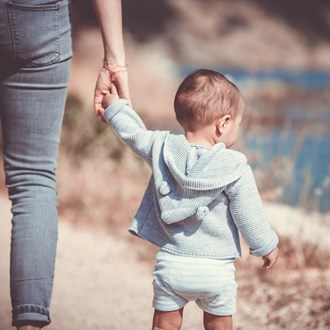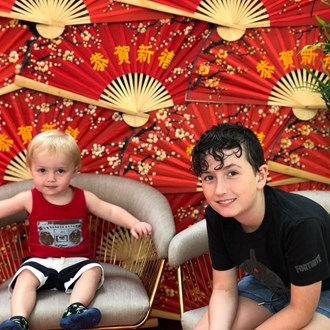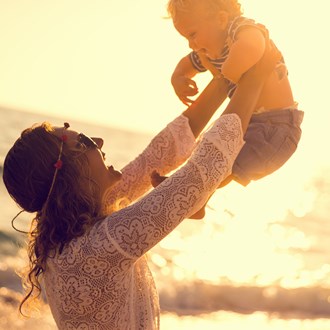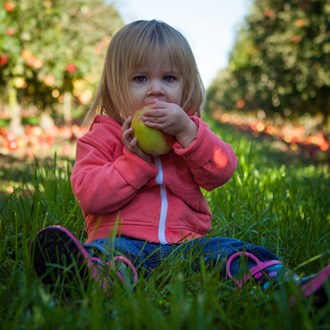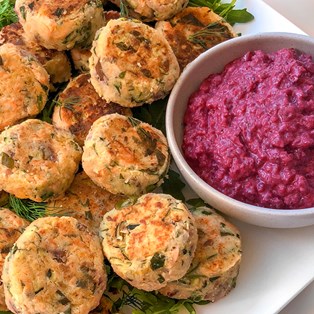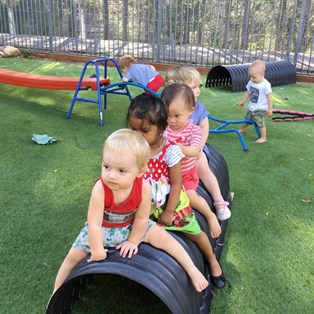Class acts: Activities for your toddler
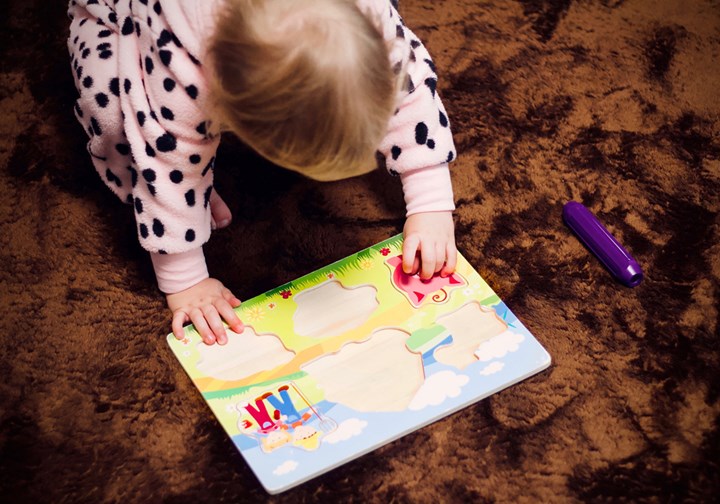
There are plenty of classes and activities out there to keep your child entertained and many are great for her development, too.
By Livia Gamble
April 05 2023
The list of activities and groups you can sign your tot up for is endless, with everything from cultural and artistic adventures to opportunities for plain old running around and burning up energy on offer. Most of these classes do have a cost, so signing up for everything could knock a big dent in the family budget! But all of them certainly provide value to parents and kidlets alike, so one or two are worth signing up for. Read on for a quick guide to some of the most popular classes on offer and decide on which ones would work best for your little munchkin…
Splish, splash: swimming lessons
Talk to Swim Australia’s CEO, Ross Gage, and he’s adamant that introducing kids to water from the time they’re tiny is one of the best things parents can do.
“Although swimming lessons are never a substitute for parental supervision, they play a crucial part in building layers of protection for young children,” he says.
And here’s a compelling reason to enrol your little munchkin in swimming lessons – back in 2009, the US National Institute of Health found taking part in formal swimming lessons “was associated with an 88 per cent reduction in the risk of drowning in children between one and four years of age.”
The sooner your child starts, the better. The Australian Swimming Coaches and Teachers Association says that littlies can begin formal programs from four months of age. Starting out in the toddler years is great, too (though you may encounter more problems with fear of the water at first), and lessons should continue until your child can easily swim at least 400m.
Ross says that being able to swim well is one of the greatest gifts that can be bestowed upon a child and his organisation says all lessons in basic swimming and water safety skills should include:
Water familiarisation, where your littlie explores and becomes comfortable in water environments, developing a respect for the water.
Building confidence through various water activities including safe entries and exits, submersions, breath control, floating, propulsion with arms and legs, turning and back-floating.
Stroke development, so your child is able to cover greater distances more easily and efficiently.
“Lessons are one of the most proactive things a parent can do,” Ross says.
If you want to find a registered swim school near you, head to Swim Australia's website. There, you’ll find plenty of tips on what to look for in a learn-to-swim school and how to help make the lessons enjoyable for both you and your youngster.
Mini maestros: Music lessons
The power of music and its effect on people has long been known. Even ancient philosopher Plato had this to say about how essential music is for kids: “I would teach the children music, physics and philosophy, but the most important is music, for in the patterns of the arts are the keys to all learning.”
And recent studies have backed Plato.
For example, Canadian researchers found that children from four to six years who had music lessons had better memories and higher literacy and math levels than their non-musical counterparts.
Another study, from the US, showed that children aged five to seven years who had been lagging behind in school caught up with their peers in reading and were ahead of them in maths after just seven months of taking music lessons.
If you’ve ever put music on and seen the immediate reaction from your sweet pea, you understand the impact a casual involvement in music and song can have.
Indeed, Amanda Niland, coordinator of Macquarie University’s Institute of Early Childhood Music Program in Sydney, says that getting a sense of joy out of music is instinctive, even in utero, and a love and talent for music is in everyone.
“Everyone’s born with the ability to be musically talented and to love music...it’s highly likely that those people who say they’re not talented weren’t exposed to music early enough,” she says.
Amanda is a fan of the Suzuki method, in which music is introduced to children at a very young age (even while they’re in the womb), so it’s learned like a language, almost by osmosis. Suzuki's Australian website has a directory of teachers and classes that start well before littlies turn three.
Music appreciation classes aimed at toddlers and preschoolers are everywhere, as well. These classes teach tykes about music at an age-appropriate level. To find a class near you, let your fingers do the walking and visit Music Teachers Online and search a list of teachers Australia-wide.
Move it, move it: Exercise, dance and gymnastics classes
According to government guidelines, toddlers need a minimum of three hours’ physical activity every single day. “Active play is the best way for young children to be physically active,” says the Department of Health and Ageing. “[And] children don’t need to do their three hours of physical activity all at once. It can be accumulated throughout the day and can include light activity like standing up, moving around and playing as well as vigorous activity like running and jumping.”
Organised classes aren’t necessary, then, for meeting your tot’s activity needs, but they can be fun! Think classes that involve dancing, free movement, gymnastics and fun kiddie circuits, which are all great ways for your sweetie to socialise while getting some of her all-important daily exercise.
There aren’t too many little ones who wouldn’t jump at the chance to tumble around at GymbaROO, and the YMCA is also a popular destination for all sorts of kids’ activities, including gymnastics.
“Gymnastics presents an opportunity to promote health and wellbeing, confidence, self-awareness and social interaction for children,” says Peter Burns, chief executive of YMCA Victoria.
“Using a wide range of equipment, children can improve their coordination, balance, body awareness, strength and flexibility – all within a friendly, safe and social environment.”
Kids’ inherent love of music coupled with their instinctive need to bounce around makes dance an obvious extra-curricular activity for many little ones.
Like gymnastics, dance classes for tots are more about movement than developing any formal techniques. Before kids reach school age, dance classes are informal and energetic, and provide a great introduction to popular styles such as classical, jazz and hip-hop. Best of all, kids can enrol in dance classes from the age they start walking.
To find dance schools in your local area, hop online and head to Dance Finder.
Creative creatures: Arts and crafts
What tot doesn’t love indulging in the messy pastime of arts and crafts? Luckily you can move the mess out of your house by taking your little munchkin to classes dedicated to painting, gluing and making stuff.
Emma Light, who runs Art Factory in Melbourne, says that every child is a natural artist. “Children don’t have any inhibitions or reservations. They have incredible imaginations. They don’t judge themselves or others. And they just love having anything to do with these sorts of activities,” she says. “And it’s something they can do all alone.
They can make something by themselves – it might look like just a scribble to us but it could be a dinosaur to them. Achieving this makes them feel so proud of themselves.”
Of course, every parent knows that kids enjoy arts and crafts. But it’s also really good for them on a number of developmental levels.
Some of the boxes these messy pursuits tick include working on hand-eye coordination, improving gross and fine motor skills and building up the hand muscles that are necessary for writing.
They also inspire creativity, help develop concentration and focus, enhance sensory awareness and build self-confidence and self-esteem.
And the best bit, besides helping to grow smart, coordinated kids, art and craft classes mean the inevitable chaos and mess aren’t in your house!
Don't forget free play!
While scheduled activities can be an interesting and stimulating part of littlies’ lives, there’s growing concern among child development experts that kids are losing opportunities to take part in unstructured play, and with that some key chances to develop a number of essential life skills.
A 2009 UK report found that, in the developed world, children’s chances to indulge in free, self-led play was diminishing at an alarming rate. In the US, kids had nine hours less free time a week in 2003 than they did in 1981.
“[Free] play is key to physical, mental and social wellbeing… but has been overlooked in many areas,” the UK report says. Play has been linked to overcoming fears in everyday life, decision-making, brain development, discovering interests and enhancing academic learning. “[Yet] play may be viewed as an ‘unaffordable luxury’ in modern society, so instead kids attend organised activities which are thought to be more educational.”
It’s also important, then, to let your tot have some free time at the park, in the yard or in your family room, when she decides how she’s going to fill her time with the resources she has.

